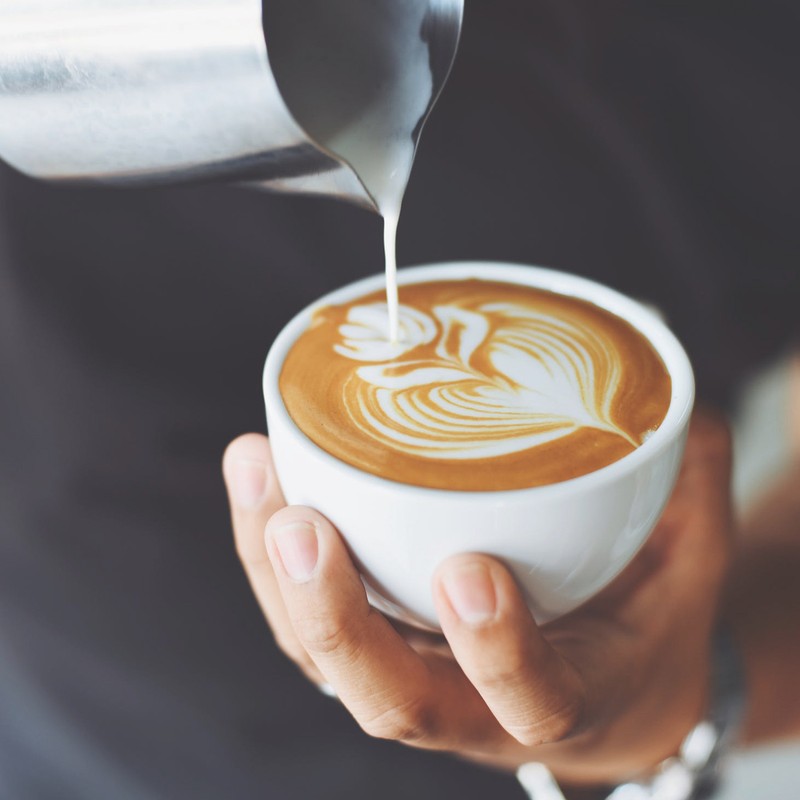This Is How Much Coffee You Need To Stay Alert
New research from the US Army’s Medical Research and Materiel Command’s Biotechnology High Performance Computing Software Applications Institute (or BHSAI, to save a bit of time) has calculated the exact amount of coffee necessary for alertness. The study, conducted by principal investigator and senior author, Dr Jaques Reifman PhD, helped to create an algorithm that hopes to provide individuals with personalised and safe caffeine doses, that’ll heighten their attentiveness while minimising their caffeine intake.
Essentially, the timing of your coffee consumption and the amount you drink is crucial to how it’s going to work for you – drink it too early and the effects will soon wear off; too late and you’ll be up all night; too little and you won’t feel the effects; or too much and those heart palpitations are real.
To remedy this, Reifman’s soon-to-be released app, called 2B-Alert, prompts you to enter the hours you plan on sleeping, how long you’ll be awake, and your planned caffeine consumption for the day, then uses the info to calculate a personalised dosing strategy to ‘optimise performance’.
“We found that by using our algorithm, which determines when and how much caffeine a subject should consume, we can improve alertness by up to 64 per cent, while consuming the same total amount of caffeine,” Reifman explained. “Alternatively, a subject can reduce caffeine consumption by up to 65% and still achieve equivalent improvements in alertness.”
In order to hone in on an individual’s level of alertness, researchers monitored how long it took subjects to see a red dot on a black background at random times in a ten-minute session – a test that’s also used by astronauts in space. The results were then combined data the study’s authors had collected over previous, similar trials, in order to inform the new algorithm predictions of how much coffee to drink.
Considering the negative effects excessive amounts of caffeine can have on the body, the app will be a welcome relief to some. Besides insomnia, high blood pressure and withdrawal headaches, too much of the stimulant can even make you hear things – a study by the University of Melbourne saw 92 participants ingest a large amount of coffee and then listen to white noise. The participants who were very stressed and had high levels of caffeine thought they could hear a song in the white noise. “The combination of caffeine and stress affect the likelihood of an individual experiencing a psychosis-like symptom,” concluded researchers.
But, despite the risk of addiction and potential side effects of caffeine, our love affair with coffee continues to grow – new figures released by the British Coffee Association revealed that the UK’s consumption has soared from 70 million cups a day in 2008 to 95 million in 2018 – that’s a lot of lattes.
At the moment, Reifman’s new technology is being tested on American soldiers-in-training, whose job it is to remain alert even when they’re sleep deprived. But the researchers hope their app will be useful to a whole range of people, from pilots and lorry drivers to students preparing for exams and anyone else needing to undertake an activity where they’ll need to operate at their cognitive capacity.
“Our algorithm is the first quantitative tool that provides automated, customised guidance for safe and effective caffeine dosing to maximise alertness at the most needed times during any sleep-loss condition,” Reifman summarised.
As long as we can still have our Instagrammable café coffees, we’re in.
DISCLAIMER: We endeavour to always credit the correct original source of every image we use. If you think a credit may be incorrect, please contact us at info@sheerluxe.com.


